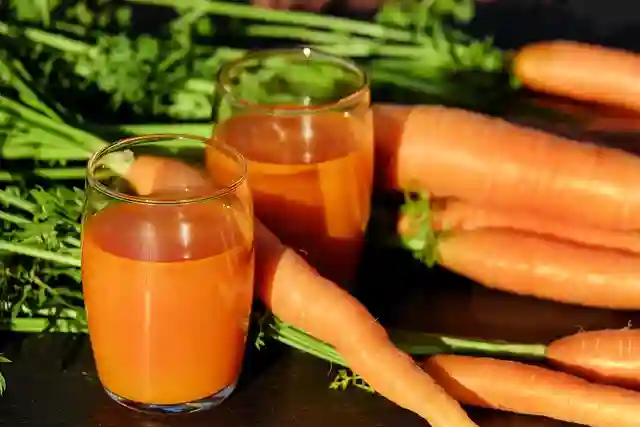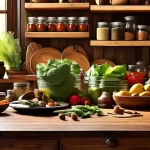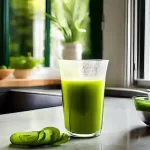Juicing for Cancer Prevention: How to Incorporate Juicing into Your Lifestyle
Are you looking for a natural way to help prevent cancer? Juicing may be the answer you’re looking for. Juicing is a simple and effective way to incorporate more fruits and vegetables into your diet, which are rich in cancer-fighting antioxidants and nutrients. In this article, we’ll explore the benefits of juicing for cancer prevention and how you can start incorporating juicing into your daily routine.
What is Juicing?
Juicing is the process of extracting the liquid from fruits and vegetables, leaving behind the pulp and fiber. This liquid contains concentrated amounts of vitamins, minerals, and antioxidants that are easily absorbed by the body. Juicing can be done with a variety of fruits and vegetables, making it an easy and versatile way to boost your nutrient intake.
Benefits of Juicing for Cancer Prevention
Juicing can provide many benefits for cancer prevention, including:
- Juicing is an excellent way to boost your nutrient intake, as it allows you to consume a large amount of fruits and vegetables in a condensed form. By juicing, you are essentially extracting the liquid from the produce, which contains concentrated amounts of vitamins, minerals, and other nutrients that are essential for your body’s overall health. This nutrient-dense liquid can provide a concentrated source of cancer-fighting compounds, such as antioxidants and phytochemicals, that are not always present in other foods.
Consuming these nutrients through juicing can help prevent cancer and support your body’s natural defense system. Furthermore, juicing can be an excellent way to consume fruits and vegetables that you might not enjoy eating whole, making it a convenient and delicious option to boost your nutrient intake.
- Antioxidants are compounds that help protect your cells from damage caused by harmful molecules called free radicals. Free radicals are produced naturally in your body, but they can also be found in environmental factors such as pollution, cigarette smoke, and radiation. When free radicals accumulate in your body, they can damage your DNA and other molecules, leading to the development of cancer.Fruits and vegetables are rich in antioxidants such as vitamin C, vitamin E, and beta-carotene, among others. These antioxidants work by neutralizing free radicals, reducing their harmful effects on your body. By consuming a diet high in fruits and vegetables, you can provide your body with the antioxidants it needs to protect your cells from damage and reduce your risk of cancer.
- Detoxification is an important process for maintaining a healthy body. It involves removing harmful toxins and waste products from the body that can accumulate over time from exposure to various sources, such as pollution, processed foods, and other environmental factors. If left unchecked, these toxins can damage cells and increase the risk of cancer and other chronic diseases.Juicing can help support the body’s natural detoxification process by providing a concentrated source of nutrients that can help flush toxins from the body. Fruits and vegetables contain antioxidants and other compounds that help neutralize harmful toxins and support liver function, which is the body’s primary organ for detoxification.
By incorporating juicing into your daily routine, you can help reduce your risk of cancer and other chronic diseases by supporting your body’s natural detoxification process. It is important to note that while juicing can be a helpful tool for detoxification, it should not be used as a sole method for detoxification and should be combined with other healthy lifestyle habits such as exercise and a balanced diet.
- Maintaining a healthy weight is important for cancer prevention, as obesity has been linked to an increased risk of several types of cancer. Juicing can be a useful tool in weight management, as it provides a low-calorie way to consume a large amount of nutrients. Fruits and vegetables are naturally low in calories and high in fiber, which can help you feel fuller for longer periods of time.
By incorporating juicing into your daily routine, you may be able to reduce your calorie intake and maintain a healthy weight, which can help reduce your risk of cancer. Additionally, many juicing recipes include ingredients that are known to boost metabolism, such as ginger and citrus fruits, which can further aid in weight management.
Juicing Recipes for Cancer Prevention
Here are some juicing recipes that are rich in cancer-fighting nutrients:
Green Juice
Ingredients:
- 2 cups kale
- 1 cup spinach
- 1 cucumber
- 1 green apple
- 1 lemon
Directions: Juice all ingredients and enjoy!
Carrot-Orange Juice
Ingredients:
- 4 carrots
- 2 oranges
- 1 inch of ginger root
Directions: Juice all ingredients and enjoy!
How to Incorporate Juicing into Your Lifestyle
Here are some tips for incorporating juicing into your daily routine:
- Start small: Begin with juicing one or two times per week and gradually increase as you become more comfortable.
- Choose organic: Use organic fruits and vegetables whenever possible to avoid pesticides and other chemicals.
- Experiment with flavors: Mix and match fruits and vegetables to find flavors that you enjoy.
- Make it a habit: Set a specific time each day to juice, such as first thing in the morning or as a midday snack.
FAQs
Q: Can juicing cure cancer?
A: Juicing alone cannot cure cancer, but it can help boost the body’s natural defenses and potentially aid in the prevention of cancer.
Q: Is it safe to consume raw fruits and vegetables through juicing?
A: Yes, it is safe to consume raw fruits and vegetables through juicing as long as they are properly washed and handled. It is important to follow safe food handling practices to prevent the risk of foodborne illness.
Q: Can juicing help with cancer treatment?
A: While juicing cannot cure cancer, it may provide some benefits for individuals undergoing cancer treatment. Juicing can help boost nutrient intake and aid in digestion, which may help manage some of the side effects of cancer treatment.
Q: How much juice should I drink per day?
A: It is recommended to drink 8-16 ounces of juice per day, which is roughly equivalent to one or two servings of fruits and vegetables.
Q: Can juicing replace eating fruits and vegetables?
A: Juicing can be a convenient way to consume more fruits and vegetables, but it should not replace eating whole fruits and vegetables. Whole fruits and vegetables provide important fiber that is essential for digestive health.
Conclusion
Juicing is a simple and effective way to boost your nutrient intake and help prevent cancer. By incorporating juicing into your daily routine and experimenting with different flavors, you can enjoy the many benefits that juicing has to offer.
References:
- “Fruit and vegetable intake and the risk of cancer: a review.” International Journal of Cancer, vol. 118, no. 12, 2006, pp. 3133-3140. Reference
- “Antioxidants and cancer prevention: an overview.” Expert Review of Anticancer Therapy, vol. 10, no. 2, 2010, pp. 321-327. Reference
- “Juicing: What are the health benefits?” Mayo Clinic, 2021. Reference
- “Safe Minimum Cooking Temperatures.” U.S. Department of Health & Human Services, 2021. Reference
- “Food Safety for People with Cancer.” American Cancer Society, 2021. Reference
- “Dietary Guidelines for Americans.” U.S. Department of Agriculture and U.S. Department of Health and Human Services, 2020. Reference







